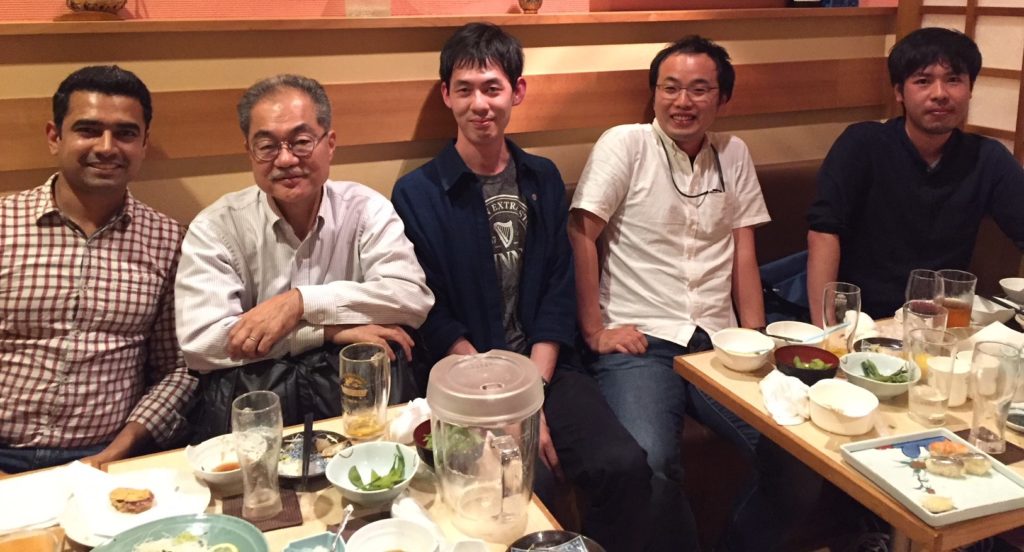Prof Dr Mahesh Desai, currently visiting the RIKEN institute in Yokohama (Japan) as part of an INTER Mobility project, has been presented with the ‘Tissier’s medal’ for his excellent contributions to the field of intestinal microbiology.
The medal, given to one researcher each year, was awarded to Dr Desai by the Japan Bifidus Foundation at the 22nd annual meeting of Intestinal Microbiology in Tokyo, attended by hundreds of researchers, where he also gave the meeting’s plenary talk.
Prof Dr Desai, based at the Luxembourg Institute of Health (LIH), is currently on a research stay RIKEN institute in Yokohama (Japan), as part of his INTER Mobility project – find out more about the INTER Mobility project in our FNR highlight. Desai was also recently awarded a Professorship at University of Southern Denmark (Adjunct Associate Professor). He also contributed to the FNR’s expert series ‘Research Trends‘.
FNR Award in 2017
In 2017, Prof Dr Desai won an FNR Award in the category Outstanding Scientific Publications for the publication “A dietary fiber-deprived gut microbiota degrades the colonic mucus barrier and enhances pathogen susceptibility”, published in the prestigous journal “Cell”.
CORE Junior project
Desai is also a PI on the CORE Junior project ‘Fiber-deprived gut microbiota erodes the colonic mucus barrier: understanding immune dysregulation, pathogen susceptibility and prospects for improvement using prebiotics’. The CORE project investigates how dietary fiber (e.g. from fruits and vegetables) protects the gut from the bacteria living there (our microbiome). While these bacteria help us to process dietary fiber as a food source, these bacteria can also eat and degrade the protective mucus layer lining the cells of our gut, which can cause diseases. He looks at how these processes work together, in order to understand how this dangerous degradation occurs while trying to design protective diets that can protect against it.

